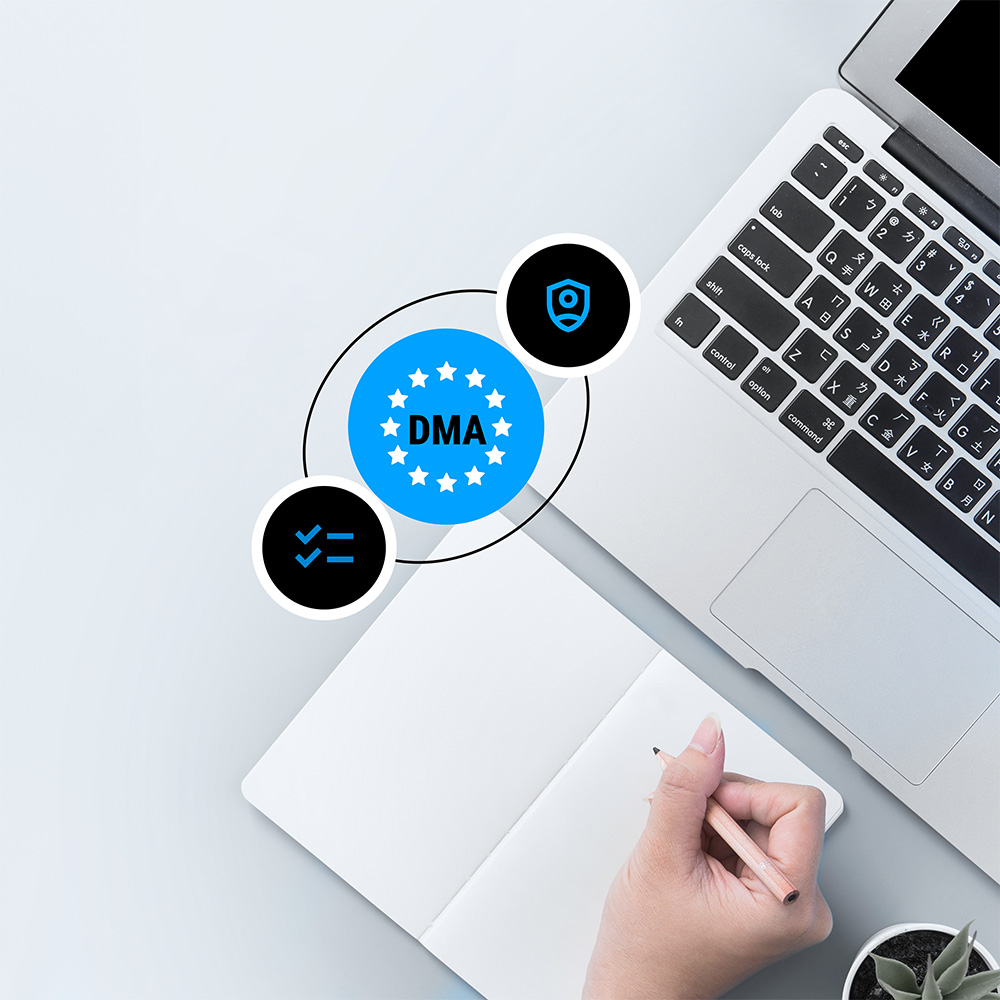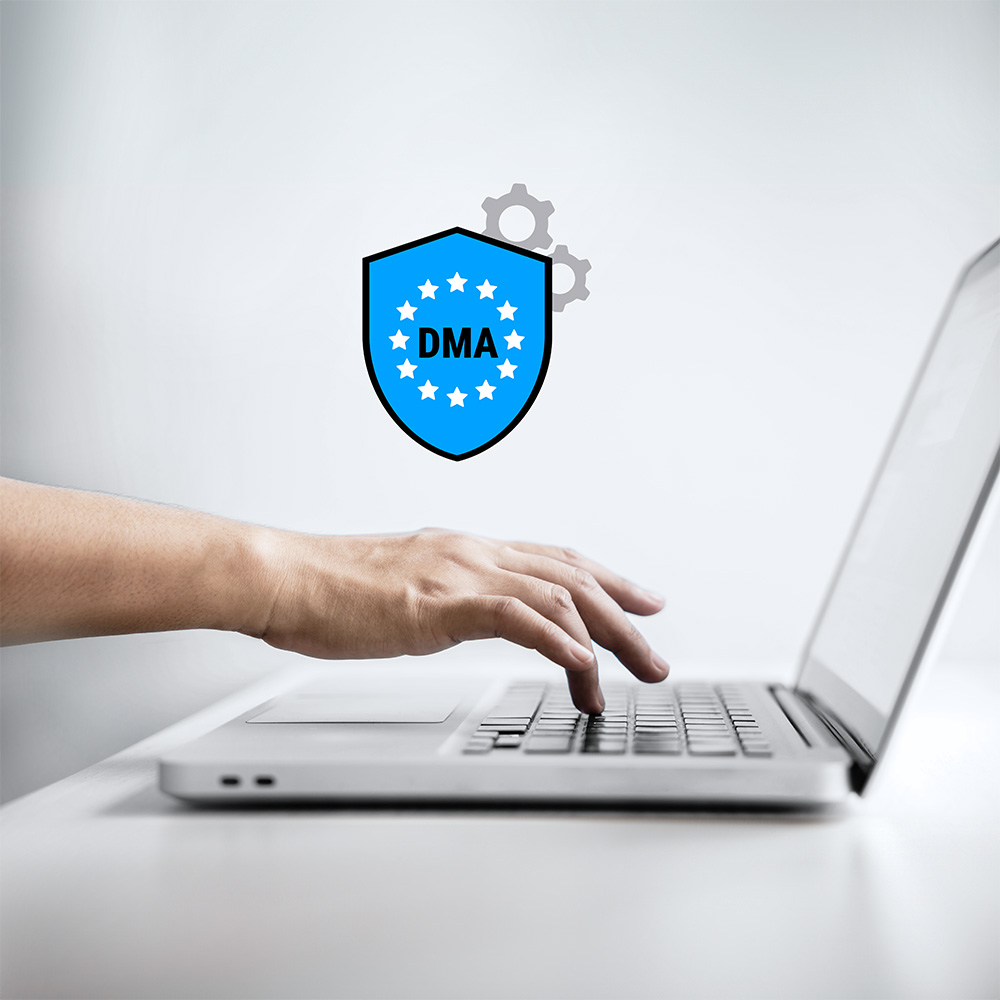Streamline your digital marketing practices
Secure your advertising revenue
Starting January 2024, web and app publishers and developers using Google AdSense, Ad Manager or AdMob, and that serve ads in the EU/EEA and UK, need a Google-certifed consent management platform (CMP) that supports IAB Europe’s Transparency & Consent Framework (TCF) v2.2. Maximize your revenue opportunities while easily achieving privacy compliance.
Key features:
- Google-certified CMP for web and app
- Easy setup of the TCF v2.2 on all platforms
- Support for Google’s Additional Consent
Secure your digital advertising strategy
As of March 2024, Google has made it mandatory to use a CMP that supports Consent Mode v2 to continue using Google services like Google Ads and Google Analytics in the EU/EEA or UK. Ensure uninterrupted display marketing campaigns and accurate measurement with our Consent Mode integration and Google’s conversion modeling. Consistently expand your audience lists with new users.
Key features:
- Seamless Consent Mode integration
- CMP integration via Google Tag Manager template or SDK
- Comprehensive and versatile consent analytics dashboard
Easy to use and
worry-free
Designed for technical and non-technical teams to save time and resources and focused on your core business.
- Get started in just a few steps
- Automated identification and categorization of cookies and trackers
- Easy blocking of cookies and trackers
- Google Consent Mode as default for businesses using Google services
Customizable and scalable
Personalized banner design for design control and trustworthy user experiences.
- Personalized banner design for design control and trustworthy user experiences.
- Customization for your brand identity and user experience via HTML, CSS or JavaScript
- Flexible banner configuration and language based on the user’s geographic location
- One user-friendly UI for managing both Web and App CMP
- Supports 60+ languages
Reliable and comprehensive
Platform-agnostic, Usercentrics Web and App CMPs enable streamlined compliance.
- Multiple implementation methods based on web and app platforms you use
- Minimal impact on website and app performance and Core Web Vitals
- Integrates with Google Tag Manager and IAB TCF 2.2
- Google Consent Mode-certified CMP partner supporting the latest GCM version
- Google-certified CMP for publishers serving ads in the EU/EEA and UK
Discover our CMS integrations
START YOUR FREE TRIAL
- Ensure your data-driven digital operations continue as the European regulatory landscape evolves
- Obtain consent-based data and minimize data or revenue loss
- Build trustworthy and compliant user experience without performance impact
See how easy consent management can be, and what it can do for your marketing practices.
Try Usercentrics free for 30 days.
Start a 30-day trial
Explore all the advanced features with no limits. Start now and cancel at any time. No credit card required.
- Unlimited configurations and domains
- Daily Website Scanner
- Privacy Policy Embeddings
- Ensure your data-driven digital operations continue as the European regulatory landscape evolves
- Obtain consent-based data and minimize data loss
- Build trustworthy user experience without any performance impact
Start a 30-day trial
Explore all the advanced features with no limits. Start now and cancel at any time. No credit card required.
- Unlimited apps and unlimited configurations
- Access to all App SDKs: iOS, Android, Flutter, React Native and Unity
- Express setup with App Scanner
New to DMA requirements? We’ve got you covered.
Frequently asked questions
What is the DMA?
The Digital Markets Act (DMA) is a regulatory framework introduced by the European Commission to regulate digital markets and address challenges to data privacy and the dominance of online tech giants. The law aims to ensure fair competition, enhance consumer protection, and promote innovation in the digital ecosystem. The DMA will have a significant impact on how large online platforms and the smaller third parties that use their services handle user consent and data.
Why was the DMA introduced?
The European Commission introduced the DMA in response to growing concerns about the power of dominant large tech enterprises that have digital platforms with enormous global reach. These companies have a significant and growing impact on competition, innovation, and consumer welfare. The law reflects the EU’s commitment to addressing the challenges posed by the digital economy in the 21st century.
The DMA’s role is to regulate the digital market, help ensure competition, and protect privacy, ensuring that the ecosystem operates in a way that is fair and beneficial to both businesses and consumers in the European Union.
What are the goals of the DMA?
The DMA has three main objectives:
- fostering competition in digital markets
- addressing unfair practices by the tech giants that control large online platforms
- safeguarding the interests of smaller businesses and consumers
By imposing specific obligations on tech enterprises that currently dominate the market—designated as gatekeepers by the DMA—the law seeks to create a more transparent, competitive, and user-centric digital commercial environment.
What are the key provisions of the DMA?
The DMA introduces several key provisions for gatekeepers, including:
- obligations for their platforms to refrain from unfair or anti-competitive practices
- provide access to data collected on or generated by their platforms
- ensure interoperability
- avoid preferential treatment of their own or specific partners’ functionality or services
Who does the DMA apply to?
The DMA applies to companies that operate large online platforms meeting specific criteria, such as having a significant impact on digital markets, acting as intermediaries between businesses and users, and enjoying a durable position of market power with significant influence over innovation. These platforms will be subject to enhanced regulatory obligations and scrutiny under the DMA. The DMA’s requirements protect online users in the European Union, European Economic Area, and the UK. The DMA does not apply outside of these areas, even though the currently designated gatekeeper companies are headquartered in the USA and China.
The six gatekeepers designated by the European Commission are:
- Meta (owner of Facebook, Instagram, WhatsApp, and others)
- Alphabet (owner of Google and Android)
- ByteDance (owner of TikTok)
- Apple
- Amazon
- Microsoft
Although the DMA applies to these gatekeepers, smaller businesses should also be aware of and understand the law, as it’ll directly impact how they use the large online platforms and services owned by gatekeepers. Business owners will be responsible for following the compliance rules imposed by digital services such as those from Google and Amazon.
Will the DMA harmonize digital market regulations across the EU?
Yes. The DMA establishes a single set of rules that apply uniformly to gatekeepers and the digital platforms operating in the EU. This consistency is intended to replace the current patchwork of national regulations with a common regulatory framework. However, certain aspects of implementation may still be subject to national customization.
How will the DMA be coordinated with other regulations?
The coordination of the DMA with other regulatory frameworks will be crucial to ensure consistency and avoid conflicts. The DMA is designed to complement existing regulations, such as GDPR, rather than replace them. The European Commission, responsible for enforcing the DMA, will work closely with other regulatory bodies, including national competition and data protection authorities, to ensure harmonization and coordination. Regular consultations and cooperation mechanisms will be established to exchange information, align enforcement actions, and address any overlaps or inconsistencies between the DMA and other regulatory frameworks.
How will the DMA impact small and medium-sized enterprises (SMEs)?
While the primary focus of the DMA regulation is tech giants, small and medium sized enterprises (SMEs) that use their platforms for sales and marketing will also feel its effects. It’s highly likely that smaller companies will soon be required to follow new privacy rules that gatekeepers will establish to comply with the DMA. The law’s data privacy requirements, for example, apply to all personal data collected on these platforms, whether directly by gatekeepers or by the third parties using them.
Compliance with these new laws won’t have a one-size-fits-all solution. However, businesses should begin exploring platforms that replace outdated intrusive methods with transparent tools for obtaining user consent, tracking without cookies, reliance on first-party databases, and context-based advertising.
Why do I need a consent management solution?
One of the DMA’s major requirements is obtaining consent in advance of collecting and processing user data. The designated gatekeeper companies as well as third parties using their platforms and services must be able to prove consent was obtained. Third parties need to be able to transmit this consent signal to gatekeeper companies like Google as well to maintain access to their platforms. A consent management solution enables companies to compliantly and securely obtain, store, and signal user consent to comply with regulations like the DMA.
What are the requirements for collecting DMA-compliant consent for use of personal data? / What is DMA-compliant consent?
The GDPR set the standard for valid consent, which has been adopted by many major privacy laws around the world, and also applies to the DMA. To be valid, consent must be:
- Explicit: Active acceptance, e.g. ticking a box or clicking a link.
- Informed: Who, what, why, for how long?
- Documented: The website operator has the burden of proof in the case of an audit. Ensure consents are securely documented and stored.
- In advance: No data is collected before the user has consented, i.e. cookies cannot be set on the website before the user consent or if they decline.
- Granular: Separate consent for each individual purpose, i.e. consent cannot be bundled with other purposes or activities.
- Freely given: Provide “Accept” and “Deny” options, e.g. buttons, that are equally displayed and accessible.
- Easy to decline or withdraw: Opting out must be as easy to do as opting in.
How can I signal explicit consent to Google?
Companies that collect valid consent can signal it to Google using Google Consent Mode (GCM). Usercentrics CMP supports the latest version of GCM.
Can visitors revoke cookie consent?
Using a cookie consent solution like Usercentrics CMP, end users can change or withdraw consent at any time, as easily as they gave it, which is a core cookie consent requirement in the EU.



